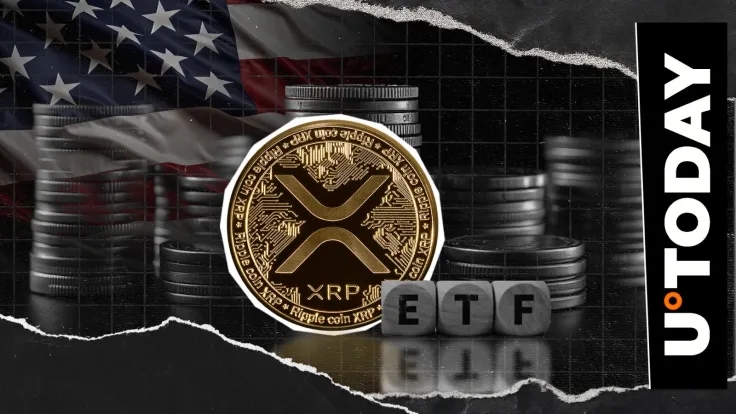US Stablecoin Law: Global Finance Braces for Major Regulatory Shifts
On Friday, July 19, U.S. President Donald Trump signed the Guiding and Establishing National Innovation for U.S. Stablecoins Act, or GENIUS Act, into law. This landmark legislation represents the United States' first significant federal law governing cryptocurrencies, passed with a bipartisan majority in Congress. The immediate impact on market sentiment was notable, as the total value of cryptoassets surged past 4 trillion U.S. dollars, according to data from CoinGecko, a prominent cryptocurrency data aggregator. President Trump enthusiastically declared the act to be "perhaps the greatest revolution in financial technology since the birth of the Internet itself."
Stablecoins, unlike their more volatile counterparts such as Bitcoin, are specifically engineered to maintain a stable value. They achieve this by being pegged one-to-one to a stable asset, most commonly the U.S. dollar. For each stablecoin in circulation, the issuing entity is expected to hold equivalent reserves, which typically include cash or short-term Treasury bonds. A report from the Brookings Institution indicates that stablecoins currently circulating boast a collective market capitalization exceeding 250 billion dollars, with approximately 99 percent of these pegged to the U.S. dollar. Key players in the stablecoin market include Tether (USDT), with a market capitalization nearing 161 billion dollars, and Circle (USDC), which accounts for about 65 billion dollars, as reported by CoinMarketCap. Dante Disparte, Circle's chief strategy officer, emphasized their practical utility, stating to CBS that stablecoins enable users "to send dollars outside of banking hours and to send dollars the way you and I might interact with WhatsApp or messaging platforms." With the GENIUS Act now in effect, banks, nonbanks, and credit unions are poised to enter the market by issuing their own stablecoins; Citigroup's CEO Jane Fraser has already indicated the bank's consideration of issuing its own form of the cryptocurrency.
The emergence of stablecoins dates back to 2014, and their popularity has since skyrocketed, particularly due to their potential applications in digital payments. Darrell Duffie, a finance professor at Stanford University, highlighted this growth. Analysts at Deutsche Bank noted the total market value of stablecoins surged dramatically from 20 billion dollars in 2020 to 246 billion dollars by May 2025. U.S. Senator Bill Hagerty pointed out that stablecoins could facilitate "nearly instantaneously" payment settlements for businesses and consumers, offering a significant improvement over traditional systems that can take weeks. Furthermore, in certain developing nations where access to dollars is limited, firms with international partners are increasingly adopting stablecoins to accelerate transfers that would otherwise be delayed by days or weeks through conventional banking channels.
Despite their advantages, stablecoins are accompanied by a range of significant concerns. A primary risk is the potential for "depegging," where the stablecoin loses its one-to-one value peg if underlying reserve assets diminish in value or liquidity. Such events can precipitate substantial trading losses or introduce systemic market risks, potentially leading to insolvency and liquidity crises, a scenario observed during the 2023 banking crisis, according to an S&P Global Ratings report. Another critical concern revolves around a pervasive lack of transparency. John Reed Stark, a former chief of the SEC Office of Internet Enforcement, voiced apprehension, stating, "In most instances, we have no visibility to any stablecoins, no public audits, no examinations, no inspections -- who knows what is really going on?" A third major worry pertains to the potential misuse of stablecoins by illicit actors, including drug dealers and scammers. Zhao Yao, a researcher at Renmin University of China, specifically warned that the anonymity and decentralized nature inherent to stablecoins could inadvertently facilitate money laundering and other illegal transactions.
The GENIUS Act represents a strategic move aligning with President Trump's declared ambition to establish the United States as "the crypto capital of the world." Christian Catalini, founder of the MIT Cryptoeconomics Lab, suggests this legislation could pave the way for widespread mainstream adoption of stablecoins for digital payments and stimulate considerable growth within the stablecoin industry. Republicans further solidified their regulatory framework during what they termed "Crypto Week" by passing two additional crypto bills. The Clarity Act aims to regulate digital commodities beyond stablecoins, while the Anti-CBDC Surveillance State Act specifically prevents the Federal Reserve from issuing any retail central bank digital currency directly to American citizens. Both the Trump administration and various crypto advocates view these legislative actions as pivotal steps toward the broader mainstream acceptance of cryptocurrencies. Eneko Knorr, CEO of Stabolut, argued that stablecoins inherently "strengthen dollar dominance" by boosting global demand for dollars and U.S. Treasuries in international trade. However, not all agree; Dean Baker, co-director at the Center for Economic and Policy Research, contended that the benefits are "trivial" when compared to central bank digital currencies, which offer similar advantages without the associated risks of private issuers.
One notable point of contention within this legislation is the debate surrounding whether and how to restrict the ability of the president and other federal politicians from issuing their own stablecoins, as highlighted in a Brookings Institution commentary. This controversy is underscored by the Trump family's direct affiliations with various crypto ventures, including a meme coin named $TRUMP and a business, World Liberty Financial, which has launched its own stablecoin, USD1. Despite these ties, the White House has maintained that President Trump's assets are managed in a trust by his children, asserting an absence of conflicts of interest. Critics like Hillary Allen, a law professor at American University, explicitly linked the legislation to financial contributions, stating to CNN that the crypto industry's significant investment in Trump's re-election campaign and congressional races represents "the return on investment for the campaign spending by the crypto industry." Furthermore, concerns extend to potential unintended macroeconomic consequences. The Economist cautioned that if consumers shift funds from traditional bank deposits into stablecoins, banks could face a loss of crucial funding sources, thereby limiting their capacity to lend. The publication also pointed out a perceived irony in U.S. Treasury Secretary Scott Bessent's goal of popularizing stablecoins globally: while efforts to expand stablecoin use abroad might seemingly strengthen the dollar, this could paradoxically undermine U.S. exports and broader trade objectives at home.
You may also like...
Legacy Continues: Football Royalty's Son Nets Stunning Screamer for Barcelona Youth

Shane Kluivert, son of Dutch football legend Patrick Kluivert, scored a spectacular 'screamer' for Barcelona's Under-19s...
WNBA Star's Terrifying Health Ordeal: Mitchell Reveals Rhabdomyolysis Left Her Paralyzed

Indiana Fever All-Star guard Kelsey Mitchell revealed she suffered from Rhabdomyolysis during a WNBA semifinal game, cau...
Warner Bros' Box Office Bubble Bursts, But Industry Shrugs: What Does It Mean?

Paul Thomas Anderson's "One Battle After Another" marks a different kind of success for Warner Bros., earning critical a...
DCU's Nightmare: Are Film Franchises Repeating MCU's Fatal Flaws?

The DCU's increasing interconnectivity, particularly in <i>Peacemaker</i> Season 2, is raising concerns about potential ...
Killer Mike's Fiery Apology: Wife's Outrage After GloRilla Comparison to Ayesha Curry!

Killer Mike has publicly apologized to Steph and Ayesha Curry for comments he made reacting to a TikTok video that ridic...
Rod Stewart's Candid Confession: Penny Lancaster Shares His Top Appearance Gripe

There is absolutely no rift between Penny and I and no disagreement over where we should reside, in fact it's the opposi...
Local Outcry: Cambuslang Jobcentre Closure Sparks Political Condemnation

South Lanarkshire Council has unanimously condemned the UK Government's decision to close the Cambuslang Jobcentre, citi...
Wunmi Adelusi's Life-Defining Moment: The Event That Still Echoes

Discover the profound and lasting impact of intentional meeting attendance beyond mere networking. This article explores...


